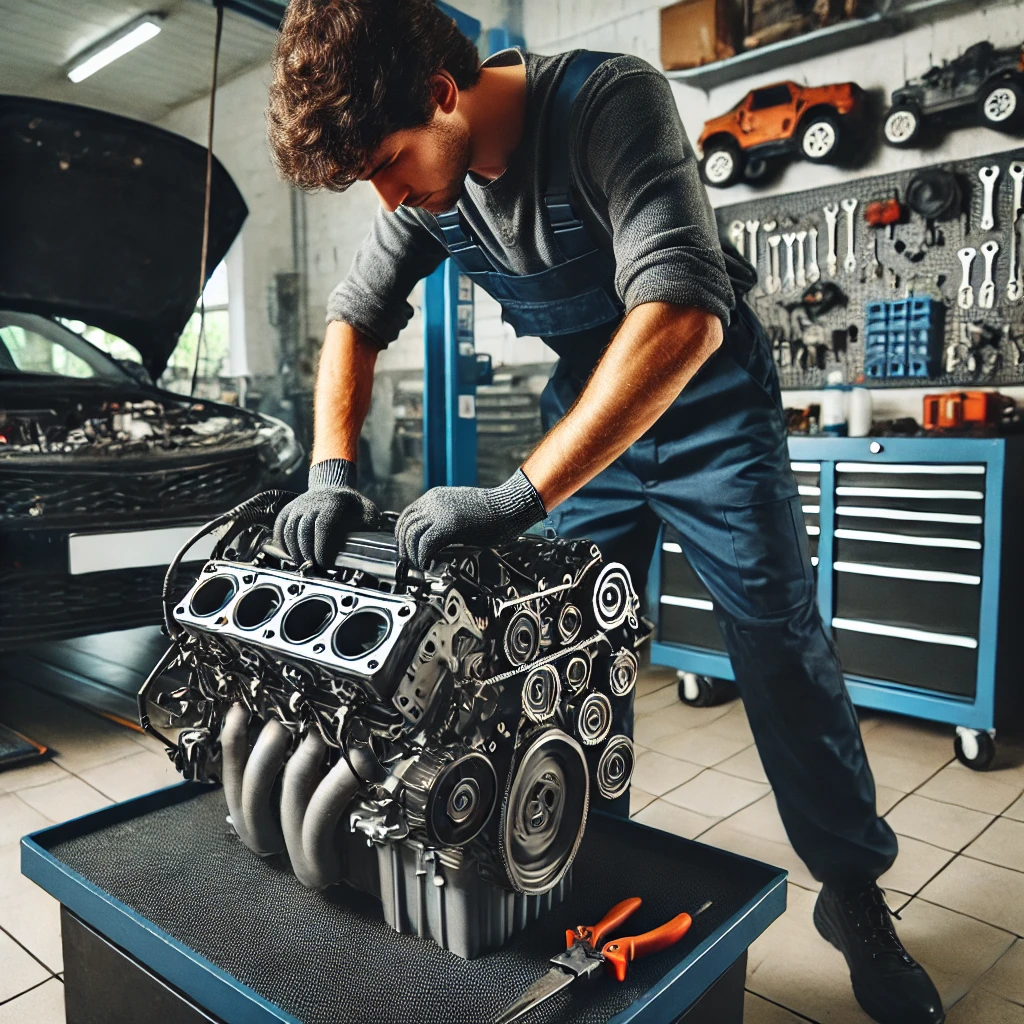Why Engine Replacement Is Necessary
The engine is the most crucial component of a car, and over time, wear and tear can cause severe issues that might necessitate a complete replacement. While minor problems like oil leaks, misfires, or power loss can often be repaired, more significant failures such as a seized engine or a blown head gasket may require a new engine.
Common Reasons for Engine Failure
- Overheating: A faulty cooling system, a broken radiator, or low coolant levels can lead to excessive engine heat, causing internal damage.
- Oil Starvation: Low or dirty oil can cause friction and wear on engine components, leading to failure.
- Severe Wear and Tear: High mileage vehicles experience natural wear, causing pistons, valves, and seals to deteriorate.
- Hydro-locking: If water enters the engine, it can destroy the internal components.
- Lack of Maintenance: Ignoring warning signs, delaying oil changes, or using poor-quality fuel can accelerate engine degradation.
Understanding Different Engine Replacement Options
When replacing an engine, you have several choices:
- New Engine (Crate Engine): A brand-new factory-built engine, often with a warranty.
- Rebuilt Engine: The old engine is taken apart, worn-out components are replaced, and it is reassembled.
- Re-manufactured Engine: Similar to a rebuilt engine but with more rigorous quality checks, often meeting factory standards.
- Used Engine: A second-hand engine salvaged from another vehicle. While cheaper, it may have reliability concerns.
Step-by-Step Engine Replacement Process
- Engine Removal: The old engine is disconnected and removed using specialized equipment.
- Inspection & Preparation: The mechanic inspects the new engine and replaces necessary components such as belts, sensors, and mounts.
- New Engine Installation: The replacement engine is carefully fitted into place, and all connections are secured.
- Testing & Calibration: The mechanic tests for leaks, adjusts performance settings, and ensures smooth operation.
- Break-in Period: The new engine requires a careful break-in period with gentle acceleration and frequent oil changes.
Cost of Engine Replacement
The cost depends on factors like engine type, labor charges, and vehicle model. Here’s a general breakdown:
- New Engine: £3,000 – £10,000+
- Rebuilt Engine: £1,500 – £4,000
- Re-manufactured Engine: £2,500 – £6,000
- Used Engine: £800 – £3,000 (plus installation)
Is Engine Replacement Worth It?
If your car is in good condition apart from engine failure, replacing the engine can extend its lifespan and improve performance. It’s a cost-effective alternative to purchasing a new vehicle, making it an ideal choice for budget-conscious car owners.

